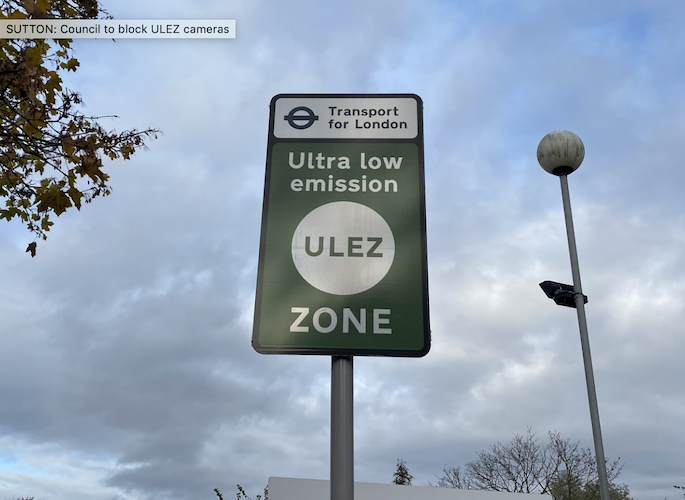Sutton Council says it will block Transport for London from installing the cameras it needs for enlarging the Ultra Low Emission Zone to cover the whole of Greater London in August.
The Liberal Democrat-run south London authority claims the scheme, which will see drivers of the most polluting motor vehicles charged £12.50 a day in order to reduce pollution is unfair on the people of the borough
Sutton is not served by any London Underground or Overground services, meaning residents must rely on National Rail trains, buses and cars to get around.
In a statement the Lib Dems said: “We are concerned that the costs will be shouldered by people already struggling to get by in a difficult time, including small business owners and key workers. Liberal Democrats want to see action on air pollution. We have been clear that ULEZ can only work for Sutton if it is fair to residents.”
The local party wants to see TfL introduce a more far-reaching scrappage scheme to help people buy newer, cleaner vehicles, more time for people to make the change and new buses and trams for Sutton. The council claims it will not sign the necessary agreement with TfL to enable it to install ULEZ cameras on roads under borough control.
The statement continued: “We are taking this step to send a strong signal to the Mayor that he must start listening to local people. Though the Mayor has the right to overrule us and may attempt to force this unpopular decision on the residents of Sutton, we are clear that would be the wrong thing to do. The position of Sutton Liberal Democrats and the council could not be clearer. We will continue to stand up for Sutton and fight for what is right by local residents and businesses.”
TfL controls only around five per cent of the capital’s road network, with the majority the responsibility of local councils. For the transport body to install all 2,750 cameras needed for the expanded ULEZ, individual boroughs will need to give permission.
Earlier this month Deputy Mayor for Transport, Seb Dance, said: “The discussions we’re having at the moment are based on what we think boroughs are prepared to do at the moment, and what we might need to do in the event that boroughs don’t want to cooperate. I mean there are powers that we have but we don’t want to use them. Ultimately, it’s better for everyone if boroughs cooperate with us, as the vast majority are.”
Photograph: James Mayer.
On London strives to provide more of the kind of journalism the capital city needs. Become a supporter for just £5 a month. You will even get things for your money. Details here.

